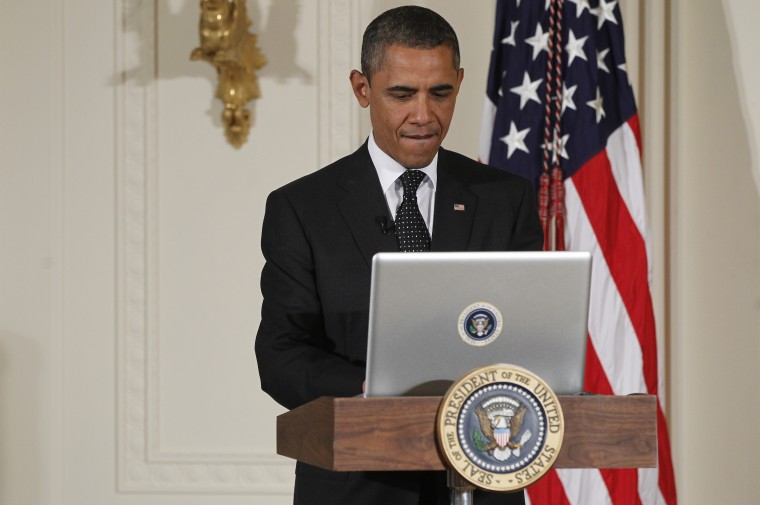After a year of wrangling and uncertainty, President Obama, a longtime champion of net neutrality, announced an ambitious policy in November, endorsing the "
strongest possible rules" to protect net neutrality and urging the FCC to
reclassify consumer broadband service to be regulated more like a public utility.
What we didn't know was whether Federal Communications Commission Chairman Tom Wheeler, who's an independent official who can disagree with the White House, intended to follow Obama's lead. Today,
he did exactly that.
The chairman of the Federal Communications Commission just said he's proposing the "strongest open Internet protections" the Web has ever seen. In a Wired op-ed, FCC Chairman Tom Wheeler announced he wants to regulate Internet providers with the most aggressive tool at his disposal: Title II of the Communications Act. In addition to covering fixed broadband providers such as Comcast and Time Warner Cable, the draft rules would cover wireless providers such as T-Mobile and Sprint. The rules would also make speeding up or slowing down Web traffic -- a tactic known as prioritization -- illegal. And it would ban the blocking of Web traffic outright.
Brian Fung's
report added that today's announcement represents "the most significant intervention ever undertaken by federal regulators to make sure the Web remains a level playing field."
Remember, as recently as last spring, Wheeler unveiled an alternative
approach,
twice, that dismissed these new steps as overly ambitious. But with Obama's push, net neutrality has enjoyed some real momentum lately, and Wheeler has apparently come around.
So what happens now? The FCC is expected to vote later this month on Wheeler's proposal, and barring a shocking turn, the agency will endorse his new rules. But, as Timothy B. Lee
explained, this still won't quite be the end:
Once the FCC approves the rules, several things could happen. First, companies and groups that dislike the regulation will sue to stop its enforcement. That's what happened after the FCC approved its last round of net neutrality regulations in 2010: Verizon sued, arguing the agency had exceeded its authority. Verizon eventually won its lawsuit. Reclassification is strongly opposed by telecom companies, so expect them to be ready with legal challenges. At the same time, the FCC will probably face opposition from the Republican Congress. They'll likely grill Wheeler on his new proposal, and they may also try to pass legislation rejecting the new rules. However, it can be expected that such legislation would be vetoed by President Obama.
It's worth noting that while Republican opposition to net neutrality has been fierce for quite a while, just over the last few weeks, there's been a
slight thaw in the GOP's posture, raising the prospect of a
possible compromise in Congress.
Either way, whether there's a compromise or not, it's a big day for net neutrality. With the White House and FCC standing behind the strongest possible policy, proponents now have exactly what they hoped for from the Obama administration.
